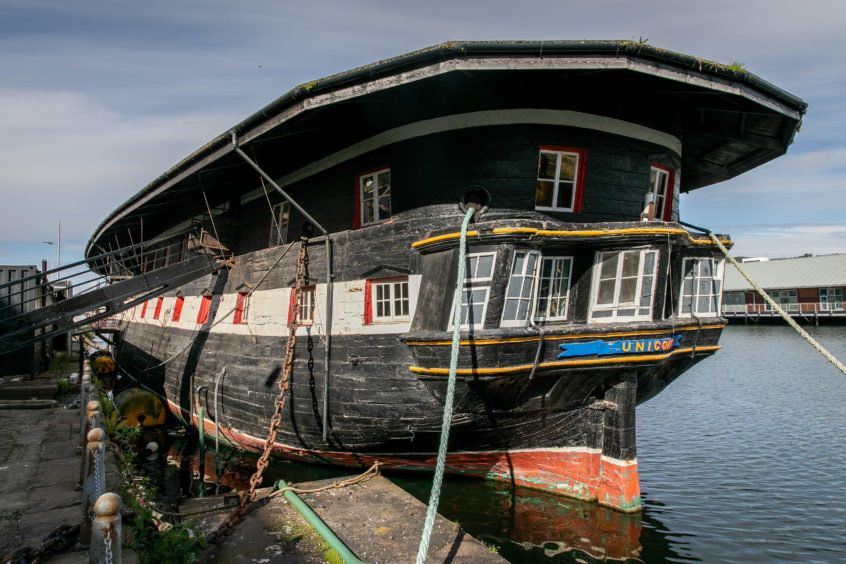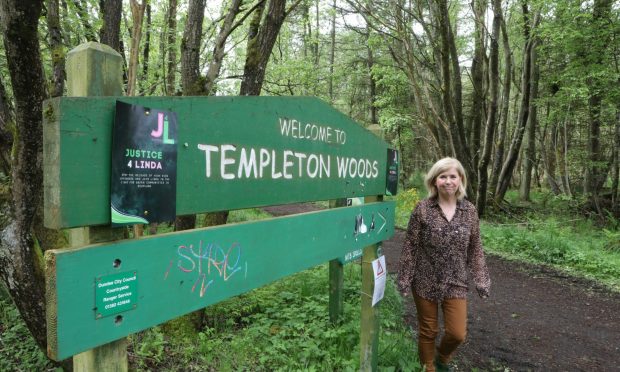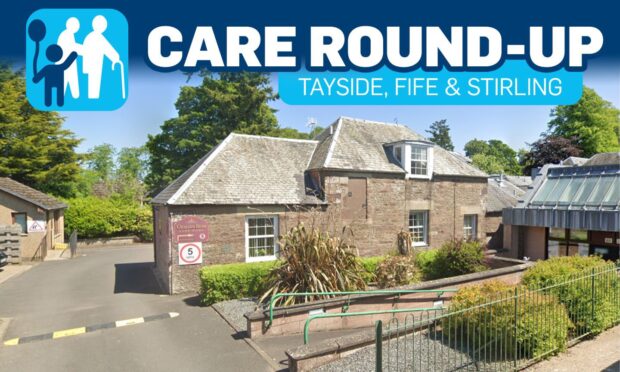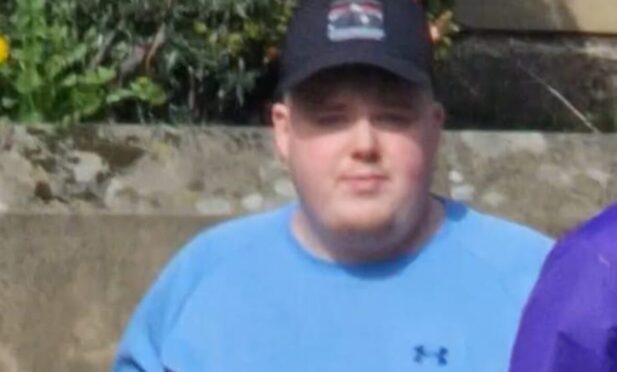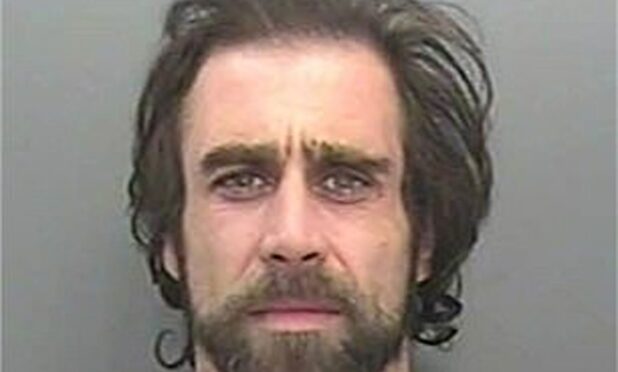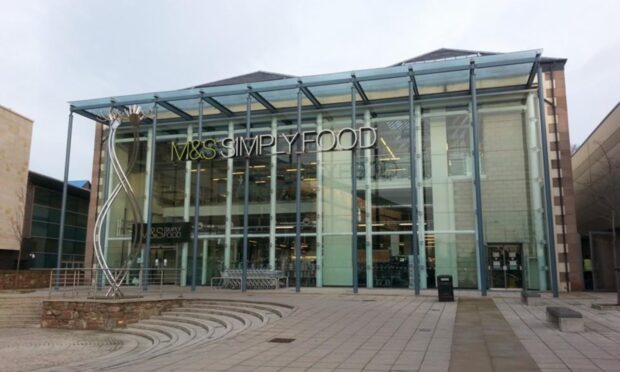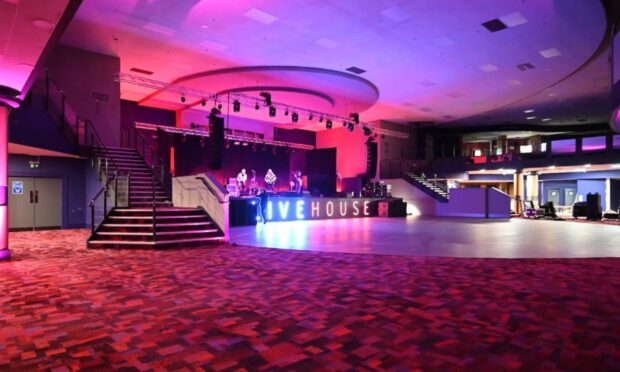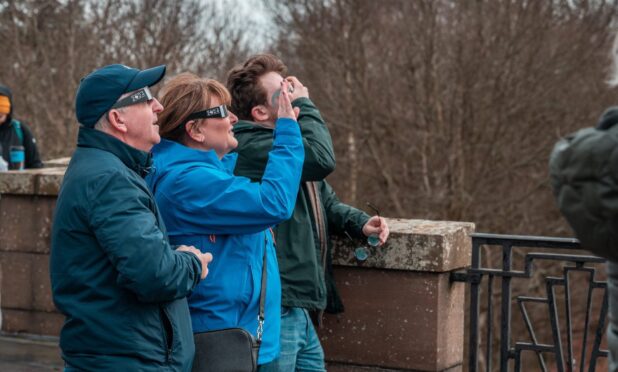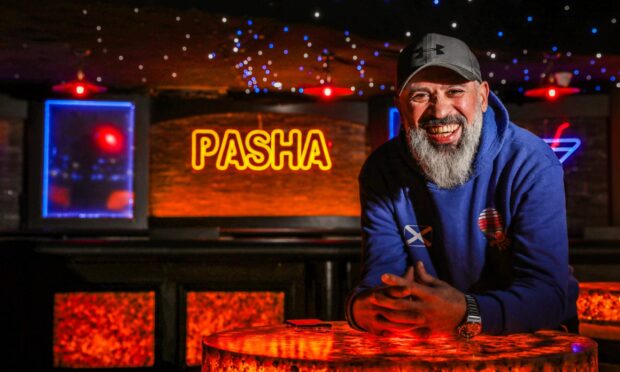Heritage volunteers face a race against time in their race to hit a £30,000 target aimed at securing the future of Dundee’s historic HMS Unicorn.
The original Georgian wooden ship is at the centre of a five-figure crowdfunder to put buoyancy bags around areas of her hull which are sagging – placing the integrity of the near 200-year-old vessel’s entire structure at risk.
Unicorn Preservation Society members hope to move Unicorn into dry dock and have launched a £15,000 fundraising campaign, which will receive match funding if successful.
Nearly £5,000 has been pledged by more than 100 generous supporters, many of them Dundonians who want to see Unicorn remain a fixture at the city’s waterfront for many decades to come.
A UPS spokesperson said: “As of September 22, just two weeks into the campaign, the buoyancy project has secured £6,795 – 45% of the target of £15,000.
“The full project will cost £30,000, but due to the support of the Heritage Emergency Fund, every pound donated up to a total of £15,000 will be matched.
“Although the project funding is nearing the halfway point, it is still far from achieving its goal. The public’s support is very much needed.”
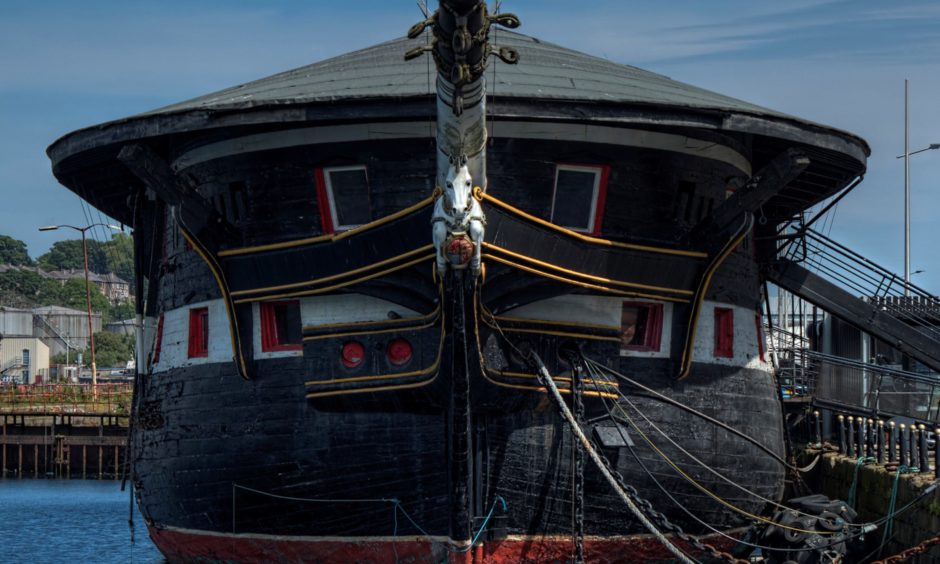
The group faces an October 6 deadline to reach the target.
“If £15,000 is not raised by this date, the project will not receive any of the donated funds. “The team is aiming to raise £10,000 before the third week of the campaign, September 29,” the spokesperson added.
The five-tonne buoyancy bags will be installed at the fore and aft ends of the City Quay-berthed ship to stop the hull ‘hogging’ which UPS said is an early but vital project in a wider preservation plan to be completed in phases over the next four years.
Donations can be made at www.crowdfunder.co.uk/hms-unicorn-preservation-project
HMS Unicorn is the oldest surviving complete wooden-hulled warship in the UK.
Her keel was laid at London’s Chatham Royal dockyard in 1822 and the ship placed in storage in 1824.
She moved to Dundee in the 1870s and was gifted to the charity by the Ministry of Defence in 1969.
